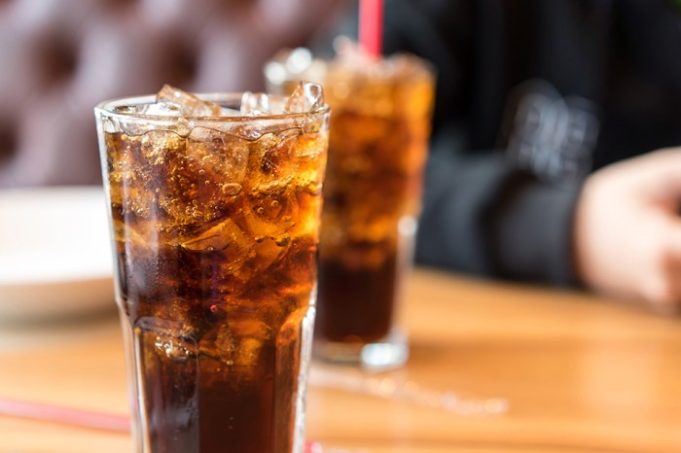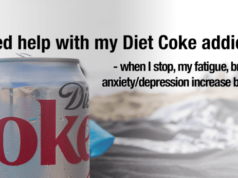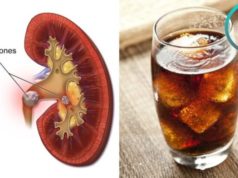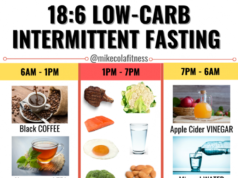Is diet soda bad for weight loss? This question has sparked debate among health enthusiasts and experts alike. While diet soda is often marketed as a calorie-free alternative to regular soda, concerns have arisen about its potential impact on weight management and overall health.
This article delves into the complex relationship between diet soda and weight loss, exploring its effects on calorie intake, metabolism, gut health, and cravings. We will examine the evidence, weigh the pros and cons, and provide a balanced perspective on whether diet soda can be a helpful tool or a potential hindrance in your weight loss journey.
Diet Soda and Calorie Intake: Is Diet Soda Bad For Weight Loss
Diet soda is often marketed as a calorie-free alternative to regular soda, making it seem like a good choice for weight loss. However, the relationship between diet soda and weight loss is complex and not fully understood. While it does reduce calorie intake, research suggests it might have some unintended consequences that could impact weight management.
Impact of Diet Soda on Calorie Intake
Diet soda is calorie-free, meaning it contains no sugar and therefore no calories. This makes it a suitable option for people looking to reduce their calorie intake, especially if they are trying to lose weight. By replacing regular soda with diet soda, individuals can significantly reduce their daily calorie intake, which is crucial for weight loss. For example, a 12-ounce can of regular cola contains around 140 calories, while a diet cola contains zero calories.
Impact of Diet Soda on Hunger and Satiety Signals
Diet soda can impact hunger and satiety signals in the body, potentially leading to increased calorie intake. Studies have shown that artificial sweeteners in diet soda may interfere with the body’s ability to regulate appetite hormones like ghrelin and leptin. Ghrelin is a hormone that stimulates hunger, while leptin signals fullness. Disrupting these hormones can lead to increased hunger and a decreased feeling of fullness, potentially causing individuals to consume more calories.
Comparison of Calorie Content: Regular Soda vs. Diet Soda
The primary difference between regular soda and diet soda lies in their calorie content. Regular soda is loaded with sugar, which is a major source of calories. Diet soda, on the other hand, contains artificial sweeteners that provide no calories. Here’s a table comparing the calorie content of regular soda and diet soda:
| Type of Soda | Calorie Content (per 12 oz) |
|---|---|
| Regular Cola | 140 calories |
| Diet Cola | 0 calories |
Incorporating Diet Soda into a Weight Loss Plan
While diet soda can be a tool for reducing calorie intake, it’s essential to incorporate it strategically into a comprehensive weight loss plan. Here are some ways to use diet soda for weight loss:
- Replace Sugary Drinks: Swap out regular soda, juice, and other sugary beverages with diet soda to cut down on unnecessary calories.
- Mindful Consumption: Be mindful of how much diet soda you consume. Excessive intake might contribute to the aforementioned negative effects on appetite hormones.
- Focus on a Balanced Diet: Diet soda should not be a replacement for a healthy and balanced diet. Prioritize nutrient-rich foods and exercise regularly.
Diet Soda and Metabolism
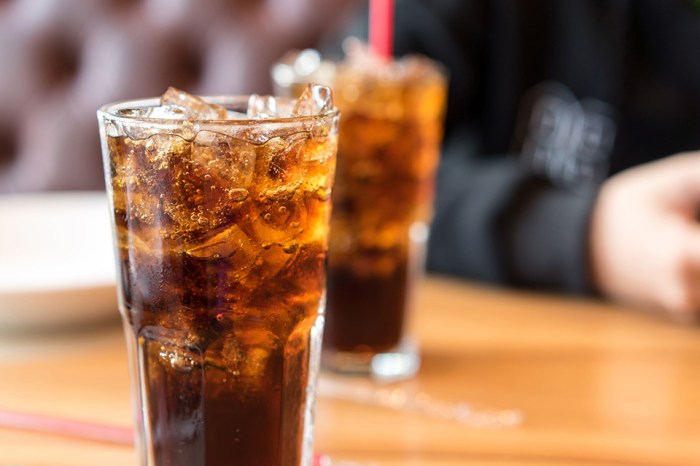
Diet soda, with its zero-calorie content, has become a popular choice for those looking to manage their weight. However, the impact of artificial sweeteners on metabolism has sparked debate among researchers and health experts. While diet soda may seem like a harmless alternative to regular soda, its long-term effects on metabolic health are still being investigated.
Artificial Sweeteners and Metabolic Adaptation
Artificial sweeteners are designed to mimic the sweetness of sugar without providing calories. While this may seem beneficial for weight management, studies suggest that artificial sweeteners might disrupt the body’s natural metabolic response to sugar. This disruption can lead to a phenomenon known as metabolic adaptation.
Metabolic adaptation occurs when the body becomes accustomed to the presence of artificial sweeteners and alters its metabolic response to real sugar. This can result in increased cravings for sugary foods, impaired insulin sensitivity, and potential weight gain.
“Artificial sweeteners may trick the body into expecting sugar, leading to metabolic adaptation and potential weight gain.”
Diet Soda and Insulin Sensitivity
Insulin sensitivity plays a crucial role in regulating blood sugar levels. When the body is insulin-sensitive, it effectively utilizes insulin to transport glucose from the bloodstream into cells for energy. However, research has shown that diet soda consumption might negatively impact insulin sensitivity.
Studies have linked diet soda consumption to reduced insulin sensitivity and increased blood sugar levels. This effect could be attributed to the disruption of the gut microbiome, which plays a role in regulating insulin sensitivity.
Long-Term Effects of Diet Soda on Metabolic Health
While the short-term effects of diet soda on metabolism are still being studied, some research suggests potential long-term health risks. Some studies have linked regular diet soda consumption to an increased risk of metabolic syndrome, a cluster of conditions that increase the risk of heart disease, stroke, and type 2 diabetes.
“Long-term diet soda consumption has been associated with an increased risk of metabolic syndrome.”
It’s important to note that these findings are still under investigation, and more research is needed to fully understand the long-term effects of diet soda on metabolic health.
Diet Soda and Gut Health
The impact of diet soda on gut health is a complex and emerging area of research. While diet soda provides zero calories, the artificial sweeteners they contain can potentially disrupt the delicate balance of gut bacteria, which plays a crucial role in overall health and weight management.
Artificial Sweeteners and Gut Bacteria
Artificial sweeteners are commonly used in diet soda to provide sweetness without adding calories. However, there is growing concern about their potential impact on the gut microbiome, the diverse community of microorganisms that reside in the digestive tract.
- Alterations in Gut Microbiota Composition: Studies have shown that artificial sweetener consumption can alter the composition and function of gut bacteria. Some research suggests that artificial sweeteners may promote the growth of certain types of bacteria, while inhibiting the growth of others, potentially leading to an imbalance in the gut microbiome. For instance, a study published in the journal “Nature” found that consuming artificial sweeteners, such as saccharin, sucralose, and aspartame, led to changes in the abundance and diversity of gut bacteria in mice.
- Increased Gut Permeability: Artificial sweeteners have also been linked to increased gut permeability, also known as “leaky gut.” This occurs when the tight junctions between cells lining the gut become compromised, allowing harmful substances to leak into the bloodstream. This can contribute to inflammation and other health problems.
Gut Health and Weight Management
The gut microbiome plays a critical role in weight management. It influences:
- Energy Metabolism: Gut bacteria contribute to the breakdown of food and the absorption of nutrients, influencing how many calories we extract from our diet.
- Hormone Production: Gut bacteria produce hormones that regulate appetite and metabolism, such as leptin and ghrelin, which are involved in feelings of hunger and fullness.
- Inflammation: A healthy gut microbiome helps maintain a balanced inflammatory response, which is essential for weight management.
Diet Soda and Gut Microbiome Composition, Is diet soda bad for weight loss
Research on the effects of diet soda on gut microbiome composition is ongoing, and findings have been mixed. Some studies have shown that diet soda consumption may be associated with changes in gut bacteria, while others have not found significant effects.
- Reduced Gut Diversity: Some studies have found that diet soda consumption may be associated with a reduction in the diversity of gut bacteria, which is considered a marker of gut health. For example, a study published in the journal “Gut” found that regular diet soda consumption was associated with lower diversity of gut bacteria in humans.
- Increased Abundance of Certain Bacteria: Other studies have found that diet soda consumption may be associated with an increased abundance of certain types of bacteria, such as Bacteroides fragilis, which has been linked to inflammation and metabolic disorders.
Diet Soda and Gut Inflammation
There is some evidence to suggest that diet soda consumption may contribute to gut inflammation.
- Artificial Sweeteners and Inflammation: Artificial sweeteners have been shown to trigger an inflammatory response in the gut, potentially by altering the composition and function of gut bacteria.
- Increased Gut Permeability: As mentioned earlier, artificial sweeteners can increase gut permeability, allowing harmful substances to enter the bloodstream and trigger inflammation.
- Potential Link to Chronic Diseases: Chronic inflammation is linked to various chronic diseases, including obesity, type 2 diabetes, and heart disease. While more research is needed to establish a definitive link between diet soda consumption and these conditions, the potential impact of diet soda on gut inflammation is a concern.
Diet Soda and Cravings
While diet soda may seem like a calorie-free alternative, its impact on cravings is a complex and debated topic. Some research suggests that diet soda, despite lacking calories, can still trigger cravings for sugary foods and drinks.
Learned Taste Preferences and Diet Soda
The concept of learned taste preferences plays a significant role in understanding how diet soda can influence cravings. When we repeatedly associate a particular taste with a reward, like the sweetness of a sugary drink, our brains develop a strong preference for that taste. Over time, this preference can lead to cravings even when the reward is absent, as in the case of diet soda. The artificial sweeteners in diet soda mimic the sweet taste of sugar, but without the associated calories. This can lead to a disconnect between our taste buds and our bodies’ expectations, potentially triggering cravings for actual sugary treats.
Examples of Diet Soda Consumption Influencing Food Choices
Consider the scenario of someone who frequently drinks diet soda. They may start to associate the artificial sweetness with the feeling of satisfaction and enjoyment they experience after consuming sugary foods. As a result, they may find themselves craving sweet treats even after drinking diet soda, as their brains anticipate the usual reward associated with sweetness.
Another example is the potential for diet soda to disrupt the body’s natural hunger cues. The artificial sweeteners in diet soda can interfere with the hormones that regulate appetite and satiety. This disruption can lead to an increased desire for food, even if the body isn’t actually hungry.
Strategies for Reducing Cravings Associated with Diet Soda
- Gradual Reduction: Instead of abruptly quitting diet soda, gradually decrease your intake over time. This allows your body to adjust to the change and reduces the likelihood of experiencing intense cravings.
- Hydration: Drinking plenty of water throughout the day can help curb cravings by keeping you hydrated and satisfied. Water can also help flush out artificial sweeteners from your system.
- Mindful Eating: Pay attention to your hunger and fullness cues. Avoid mindless snacking or eating when you’re not truly hungry. This helps you develop a healthier relationship with food and reduce cravings.
- Alternative Beverages: Explore other beverages like unsweetened tea, sparkling water, or infused water to satisfy your thirst and reduce your reliance on diet soda.
- Healthy Snack Options: Keep healthy snacks on hand, such as fruits, vegetables, or nuts, to help curb cravings when they arise. This provides your body with nutrients and helps prevent you from reaching for sugary treats.
Diet Soda and Weight Loss Strategies
While diet soda can be a tool in a weight loss plan, it’s crucial to understand its limitations and the importance of a comprehensive approach. Diet soda can play a role in reducing calorie intake, which is essential for weight loss. However, it’s not a magic bullet and should be incorporated alongside other healthy habits.
The Potential Benefits of Diet Soda for Weight Loss
Diet soda can contribute to weight loss by reducing calorie intake. Replacing sugary beverages with diet soda can significantly lower your daily calorie consumption. Additionally, diet soda can be a helpful tool for behavioral change. It can help break unhealthy habits like sugary drink cravings and support the transition to a healthier lifestyle.
A Comprehensive Approach to Weight Loss
Weight loss is a complex process that requires a multi-faceted approach. Focusing solely on diet soda is unlikely to lead to sustainable weight loss. A comprehensive weight loss plan should include:
- A balanced diet rich in fruits, vegetables, lean protein, and whole grains.
- Regular physical activity, including cardio and strength training.
- Lifestyle modifications such as getting enough sleep, managing stress, and staying hydrated.
Tips for Incorporating Diet Soda into a Healthy Weight Loss Plan
- Drink diet soda in moderation. Excessive consumption can lead to potential negative health effects.
- Choose diet soda options with fewer artificial sweeteners and flavors.
- Consider using diet soda as a temporary tool for breaking sugary drink cravings, gradually transitioning to water or unsweetened beverages.
- Pair diet soda with healthy meals and snacks to avoid overconsumption.
- Focus on building healthy habits, such as regular exercise and a balanced diet, rather than relying solely on diet soda for weight loss.
Pros and Cons of Diet Soda for Weight Loss
| Pros | Cons |
|---|---|
| Reduced calorie intake | Potential for artificial sweetener side effects |
| May help break sugary drink cravings | May contribute to increased cravings for sweet foods |
| Can be a temporary tool for behavioral change | Limited evidence on long-term effects on weight loss |
| May aid in weight maintenance | Potential negative impact on gut health |
Conclusive Thoughts
In conclusion, the question of whether diet soda is bad for weight loss is not a simple yes or no. While it can be helpful in reducing calorie intake, research suggests that it may have unintended consequences for metabolism, gut health, and cravings. Ultimately, the decision of whether to include diet soda in your weight loss plan should be made on an individual basis, considering your specific health goals and preferences. A holistic approach that emphasizes a balanced diet, regular exercise, and mindful eating habits is key to achieving sustainable weight loss and overall well-being.
Essential FAQs
Is diet soda better than regular soda for weight loss?
Diet soda is generally considered better than regular soda for weight loss because it contains fewer calories. However, the potential negative effects on metabolism and gut health may outweigh this benefit.
Does diet soda cause cravings?
Diet soda may contribute to cravings by disrupting the body’s natural hunger and satiety signals, leading to increased food intake.
Are there healthier alternatives to diet soda?
Yes, there are healthier alternatives to diet soda, such as water, unsweetened tea, and sparkling water. These options provide hydration without the potential drawbacks of artificial sweeteners.
Is diet soda safe for everyone?
Diet soda is generally safe for most people, but individuals with certain medical conditions, such as diabetes, may need to avoid it. It’s always best to consult with a healthcare professional for personalized advice.
The question of whether diet soda hinders weight loss is complex. It’s tempting to think that zero-calorie drinks are a weight-loss miracle, but the reality is more nuanced. To understand why, we need to consider what “diet” truly means. What does diet mean ?
It’s not just about restricting calories; it’s about making sustainable, healthy choices. Diet soda, while calorie-free, may disrupt your body’s natural hunger cues and lead to cravings for sugary foods, ultimately hindering your weight loss journey.
While diet soda might seem like a calorie-free option for weight loss, some studies suggest it could actually hinder your efforts. The artificial sweeteners in diet soda can disrupt gut bacteria and potentially lead to cravings for sugary foods. If you’re looking to improve your overall health and manage weight, it’s important to consider a balanced diet.
A good place to start is understanding what is the best diet for irritable bowel syndrome , as gut health plays a significant role in weight management. Focusing on whole, unprocessed foods and staying hydrated can be much more beneficial than relying on diet soda for weight loss.
While diet soda might seem like a harmless alternative for weight loss, studies have shown that it can actually have the opposite effect. The artificial sweeteners can mess with your gut bacteria and trigger cravings for sugary foods. Instead of relying on diet soda, it’s crucial to focus on a what is good diet that includes plenty of whole foods, fruits, and vegetables.
Remember, a healthy diet is the key to long-term weight management, and it’s better to avoid diet soda altogether.















